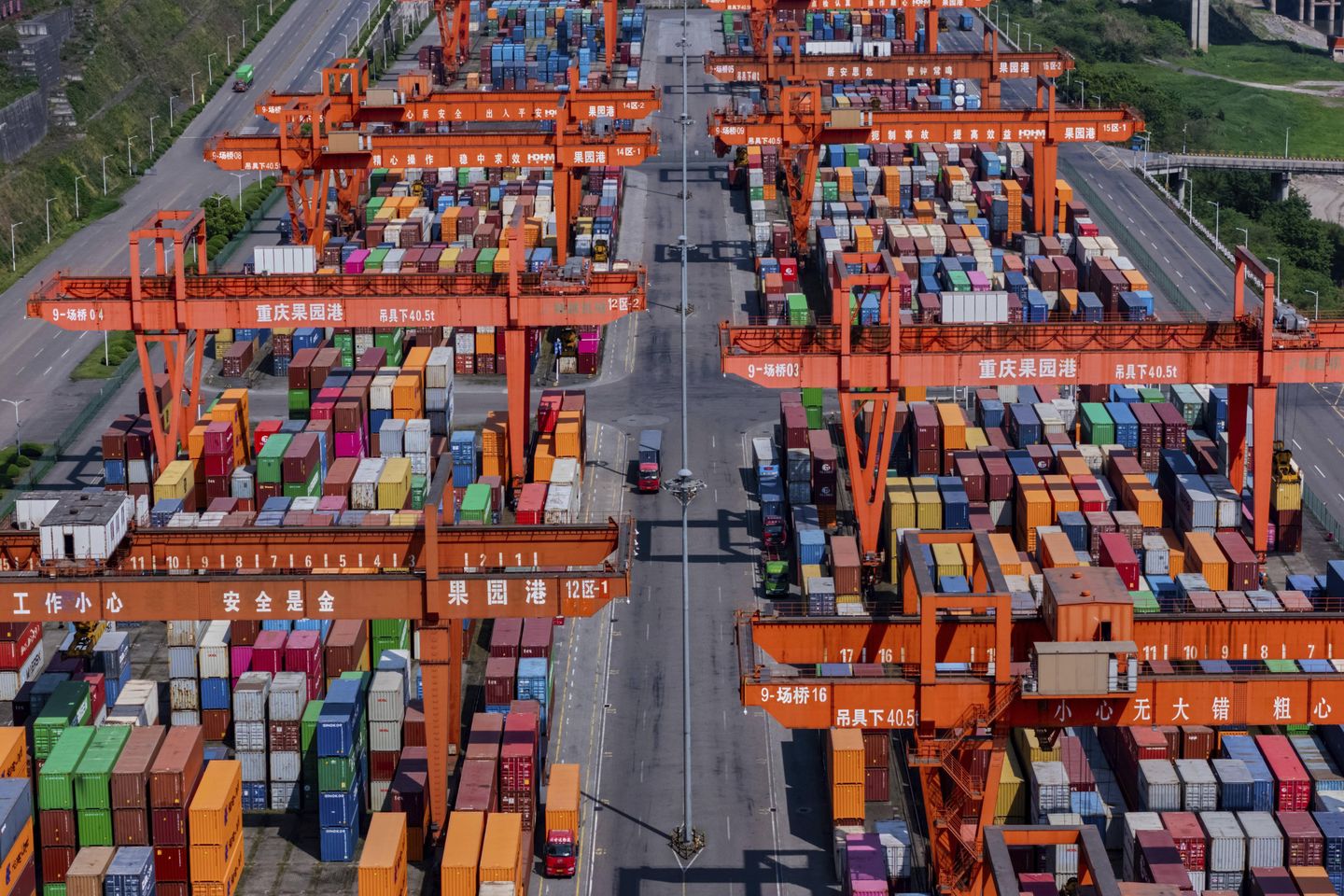
China on Monday threatened to retaliate against any nation that agreed to isolate Beijing as part of trade negotiations with the Trump administration.
The Chinese Ministry of Commerce issued its warning in response to reports that U.S. negotiators would pressure nations to reduce their economic ties with China in exchange for relief from President Trump’s reciprocal tariffs, which have been paused for 90 days.
“It should be pointed out in particular that China firmly opposes any party reaching a deal at the expense of China’s interests,” the commerce ministry said in a translated statement. “If this happens, China will never accept it and will resolutely take countermeasures in a reciprocal manner.”
The Washington Times reached out to the White House for comment on whether it is trying to isolate China.
The U.S. and China are jockeying for the upper hand on trade after Mr. Trump issued a “Liberation Day” trade plan on April 2 that imposed a blanket 10% tariff on imports and higher tariffs on nations that sell plenty of products to American consumers but don’t buy nearly as much from U.S. producers.
China retaliated with matching tariffs, resulting in a 125% levy on U.S. goods while Mr. Trump imposed a 145% tariff on most products from China.
The White House says the ball is in China’s court to initiate negotiations, though Chinese President Xi Jinping seems unwilling to make the first move. His communist government says it doesn’t want a trade war but is willing to fight “to the end.”
Mr. Xi recently traveled to Southeast Asian nations, a sign that Beijing is trying to woo trade partners even as those nations negotiate with the U.S.
Countries other than China were granted a 90-day reprieve from tariffs because they were willing to sit down with Mr. Trump’s team.
Japan held high-level talks, and Italian Prime Minister Giorgia Meloni visited the White House before Easter to represent Italy’s interests and, ostensibly, those of the entire European Union.
“Since our announcement of LIBERATION DAY, many World Leaders and Business Executives have come to me asking for relief from Tariffs,” Mr. Trump wrote late Sunday on Truth Social.
Tariffs are a tax or duty paid by importers on the goods they bring in from foreign markets.
Mr. Trump says tariffs are a great way to force companies to return to America or keep their operations in the U.S., employ American workers and create revenue to fund domestic programs.
Foreign countries don’t pay the tariffs directly to the U.S. Treasury. In many cases, U.S. companies will pay the levies, and they might pass on at least some of the cost to consumers through higher prices.
Wall Street has been on a roller-coaster ride since the April 2 announcement, as investors grapple with uncertainty about the fallout.
Mr. Trump says the U.S. might deal with some disruption but it will be worth the payoff.
“It’s good to see that the World knows we are serious, because WE ARE! They must right the wrongs of decades of abuse, but it won’t be easy for them,” Mr. Trump wrote online. “We must rebuild the Wealth of our Great Country, and create true RECIPROCITY. But for those who want the easiest path: Come to America, and build in America!”
It’s unclear if the White House will strike quick deals with other nations or if the negotiations will take time.
Japanese Prime Minister Shigeru Ishiba told parliament on Monday he would raise concerns about the 25% tariffs that Mr. Trump slapped on foreign-made cars. A 2019 Japan-U.S. trade deal featured assurances that there would not be future car tariffs, according to Reuters.
“Japan has grave concern over the consistency” between those 2019 assurances and the new auto tariffs, Mr. Ishiba said.
He also suggested the Japanese side won’t just roll over in trade talks.
“If Japan concedes everything, we won’t be able to secure our national interest,” Mr. Ishiba said.
While some countries come to the table, Beijing said no one will emerge victorious from a trade war.
“No one can remain immune to the impact of unilateralism and protectionism,” the commerce ministry said. “Once international trade returns to the ‘law of the jungle’ where the strong prey on the weak, all countries will become victims.”












